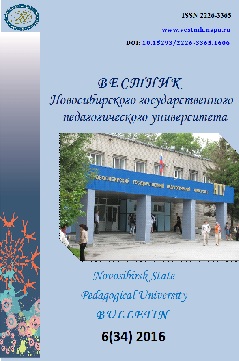Различия в показателях личностного потенциала у высокоинтеллектуальных студентов
Differences in personal potential in highly intelligent students
Author(s): Anna Vasilievna Budakova, Valery Vladimirovna MatsutaSubject(s): Individual Psychology, Sociology of Education
Published by: Новосибирский государственный педагогический университет
Keywords: personal potential; intellectual potential; highly intellectual students; self-organisation; reflection; basic beliefs
Summary/Abstract: The results of studies of the personal potential of highly intellectual students are presented. The article provides a review of current studies in the field of intellectual and personal potential as a predictor of success. The methodological approach taken in this study is a mixed methodology based on the ideas of the systemic anthropological psychology suggested by V. E. Klochko, the theory of personal potential developed by D. A. Leontiev within the framework of positive psychology, and the concept of human intellectual abilities introduced by M. A. Kholodnaya. The aim of the research presented in this article was to study the peculiarities of personal potential and intellectual abilities of first-year university students. The first stage of the research involved identifying the level of students’ personal potential and intellectual ability. The results obtained from the correlational analysis showed a significant correlation between IQ and personal potential, especially the self-organization parameters of "Planning" and "Fixation". The last stage of the research based on the cluster analysis identified four groups of highly intelligent students with various personal potential indicators. Conducting the analysis of var-iance, the authors compared the groups, and on the base of the revealed variant and invariant personality traits two profiles of students with high level of intellectual development have been identified. The first profile is characterized by high personal potential, based on the expression of self-reflection, psychological safety and social intelligence which allows to predict their success in everyday activities and high achievements. The second profile shows low personal capacity, substantial characteristics of which will interfere with the achievement of success, despite the high level of intelligence. In conclusion, the study suggests that personal potential is the major factor determining success achievements in various activities.
Journal: Вестник Новосибирского государственного педагогического университета
- Issue Year: 6/2016
- Issue No: 6
- Page Range: 17-30
- Page Count: 14
- Language: Russian

